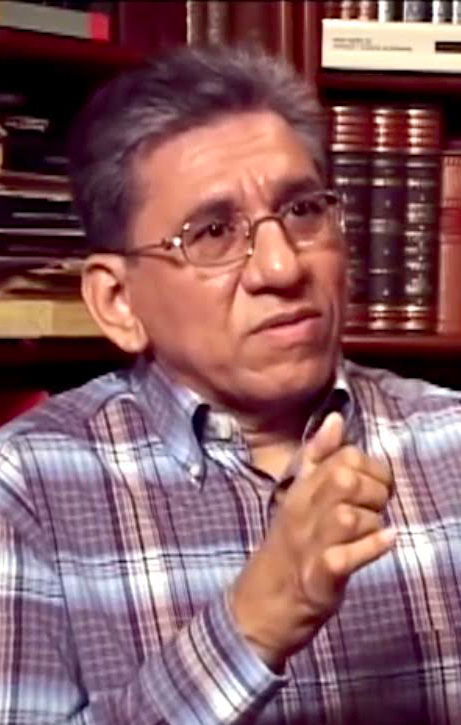
By Frances Robles
Humberto Ortega Saavedra, the former leader of Nicaragua’s military and the younger brother of the current president, who openly challenged his brother’s “dictatorial” regime, died Monday in Managua, the capital. He was 77.
The Nicaraguan government confirmed his passing, which occurred in a military hospital. Ortega had been suffering from significant health issues for several months related to severe heart conditions, as reported by the Nicaraguan military.
Ortega played a pivotal role within the leftist Sandinista Front that overthrew the rightist dictatorship of Anastasio Somoza in 1979.
Together with his brother, Daniel Ortega, Nicaragua’s present president, he was part of the nine-member directorate that governed Nicaragua amid a civil conflict against U.S.-backed rebels known as the Contras throughout the 1980s.
In their announcement of his death, the government recognized his “strategic contribution” as a Sandinista, a cause he joined as a teenager.
“He was recognized as one of the most significant military planners during the insurrection,” stated Mateo Jarquín, a historian from Chapman University in Orange, California.
Ortega authored several books reflecting on his involvement in the downfall of the Somoza dynasty—a corrupt family rule in Nicaragua for many years—and took pride in fostering change within the Central American country, according to Jarquín.
Following the Sandinista victory, Ortega faced scrutiny for instituting compulsory military service during the conflict with the Contras and was also held responsible by some for a massacre of Indigenous people attributed to the Sandinistas in December 1981.
However, Ortega’s most notable legacy arguably emerged post-revolution and the ensuing war. He gained recognition for professionalizing the armed forces, transforming them from a faction loyal to a single political party into a legitimate military entity.
After the Sandinistas were ousted from power in the 1990 elections, Jarquín’s grandmother, President Violeta Barrios de Chamorro, retained him as head of the armed forces, a contentious decision she deemed essential for a smooth transition.
“She viewed him as a crucial element for restoring peace in the nation,” remarked John F. Maisto, who served as the U.S. ambassador to Nicaragua during her tenure. “It was a very astute choice.”
Nonetheless, she encountered pressure from conservatives in Nicaragua and the U.S. to dismiss him.
While in the Chamorro administration, Ortega minimized the size of the military and oversaw a transition that involved removing the term “Sandinista” from its title.
“This was all part of the democratic transition,” stated Maisto. “Among the ranks of the Nicaraguan military, he was well-regarded.”
Over the years, Ortega faced allegations of covering up the 1990 murder of a 16-year-old boy who was shot by members of his motorcade’s security crew. The matter was taken to a military court, which acquitted him, but an international human rights tribunal later required the government to pay $20,000 in damages.
He served until 1995 and subsequently relocated to Costa Rica, where he found success in various business projects, supported by the connections he had developed during his time in office.
His brother Daniel assumed the presidency in 2007 and has been accused of establishing an authoritarian dynastic regime akin to the one the Ortega siblings helped dismantle.
Humberto Ortega leveraged his position as the president’s brother to vocalize against abuses. During a popular revolt in 2018 that resulted in numerous deaths, Ortega publicly criticized the use of paramilitary armed civilians, advocated for early elections, and urged his brother to cooperate with the military to address the crisis.
In a recent interview with an Argentine media outlet, Infobae, after returning to Nicaragua, he expressed skepticism about the prospect of replacing an authoritarian leader.
“The same authoritarian, personalist, and hierarchical tendency to lead has diminished the party’s communication channels,” he stated.
His remarks provoked anger from the president and his wife, anticipated successor, Vice President Rosario Murillo.
Shortly after, reports emerged that police had encircled Ortega’s residence and confiscated his electronic devices. He was never seen or heard from again. Ortega was widely believed to have been placed under house arrest since May.
The president later labeled his younger brother a “traitor” for previously awarding a significant military commendation to an American.
In an audio message recorded in June, three weeks after the police raid at his home, Ortega conveyed to Nicaragua’s Confidencial news outlet that he was a “political prisoner.” He expressed concern that the strain from his “unjust detention” could “lead to a fatal result at any moment.”
“All my liberties have been suspended,” he stated, according to an online recording.
Ortega claimed he was prohibited from having family visits, was in solitude, and had to rely on a concealed telephone.
“He was viewed as a sort of rival by Rosario: She wanted no one else having Daniel’s ear apart from herself,” remarked Stephen Kinzer, a senior fellow at Brown University who reported on the Contra war for The New York Times. “He would be the sole one capable of competing.”
Humberto Ortega Saavedra was born on January 10, 1947, in La Libertad, a mining community in Chontales, central Nicaragua.
His parents, Daniel Ortega Cerda and Lidia Saavedra, were passionate nationalists who relocated the family to Managua during the 1950s. They had six children, two of whom passed away in infancy. Humberto Ortega was preceded in death by a sister, Germania, and a brother, Camilo, who perished in combat during the revolution.
Ortega became involved with the Sandinistas as a teenager and was credited with saving a commander, an operation in which he was injured, resulting in lasting damage to his upper body, as indicated in the government’s death notice.
The statement also noted that he was a prolific author, particularly on the history of the Sandinista movement.
A separate statement from his family confirmed he is survived by three daughters and two sons.
